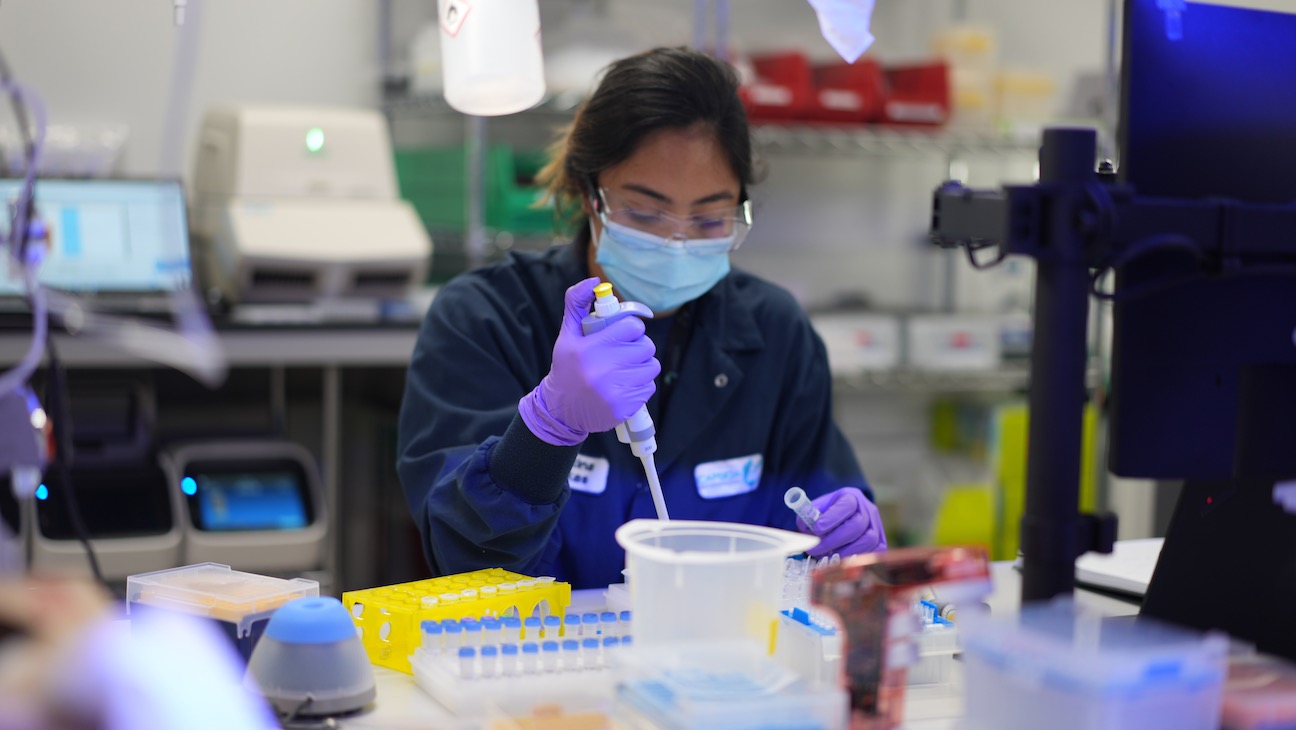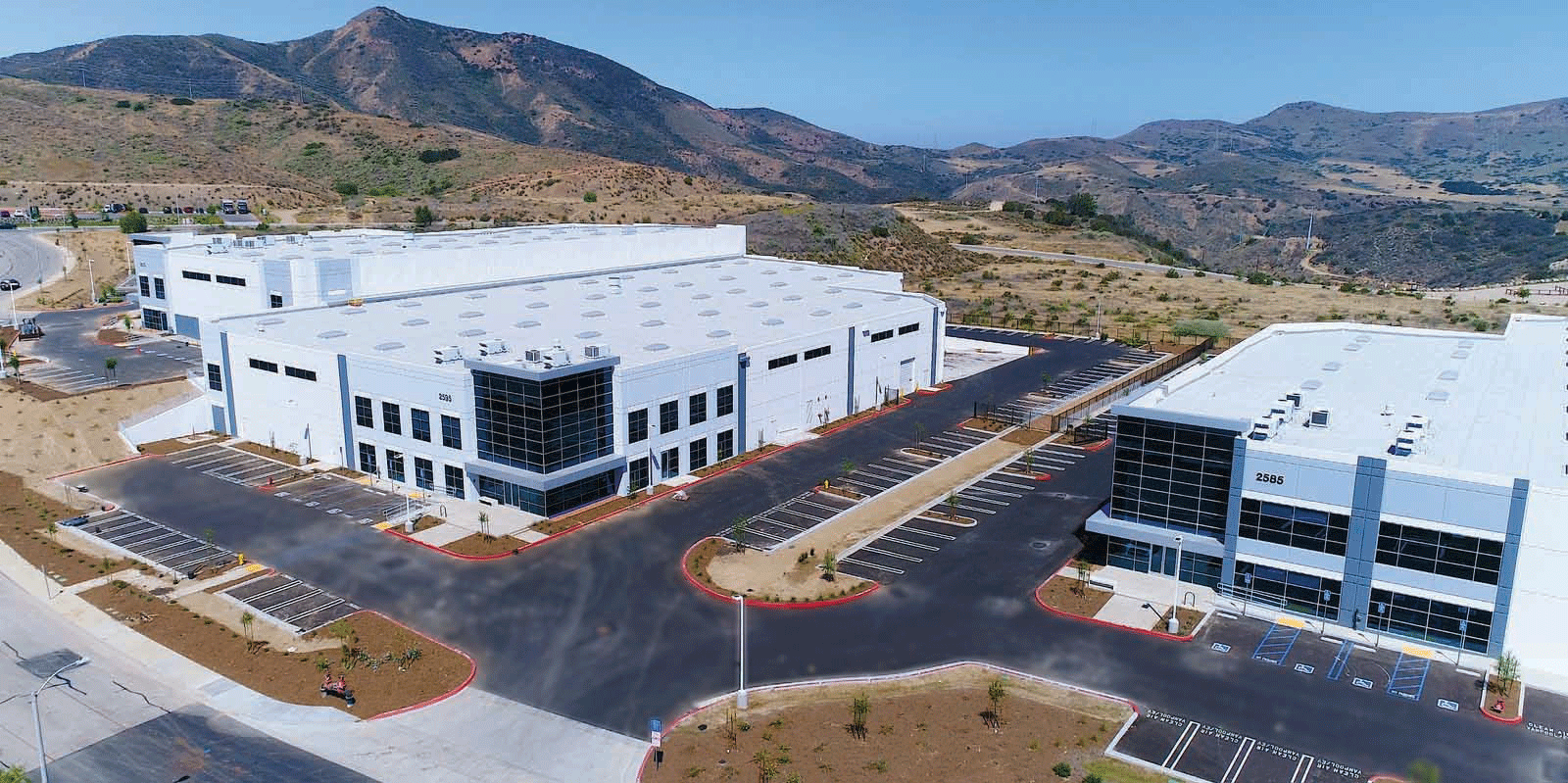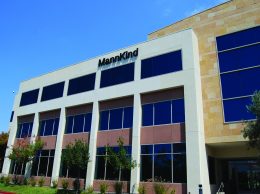In Thousand Oaks, biotech execs discuss industry’s ‘rising tide,’ lament area’s lack of housing
IN THIS ARTICLE
- Health Care & Life Science Topic
- Tony Biasotti Author
By Tony Biasotti Friday, April 8th, 2022

In a dark period for the Ventura County economy, immediately before and during the COVID-19 pandemic, the biotechnology sector in the Conejo Valley has been a bright spot.
The sector has grown in jobs, economic output and new businesses since 2019, even when the county as a whole has not, according to data presented on April 8 by Matthew Fienup, the executive director of the Center for Economic Research and Forecasting at California Lutheran University, at an economic forecast event held by the Greater Conejo Valley Chamber of Commerce.
In addition to Fienup’s presentation, the event featured a panel discussion of biotech leaders who discussed what makes the Thousand Oaks area such a hotbed for the industry and what could make it even better.
The panel’s moderator, California Assemblymember Jacqui Irwin, D-Thousand Oaks, said she recently attended a biotech convention in Boston, where Thousand Oaks was mentioned as one of the fastest-growing biotech hubs in the country.
Traditionally, Boston has been at the top of that list, along with San Diego and the San Francisco Bay Area. But the Conejo Valley, particularly the area in Thousand Oaks along Rancho Conejo Boulevard, isn’t far behind.
“If you have the best science on Rancho Conejo Boulevard, you probably have some of the best science in the world,” said panelist Rob Murphy, the vice president of manufacturing at Capsida Biotherapuetics, a startup that already employs 120 people in Thousand Oaks.
The roots of the Conejo Valley biotech industry are at Amgen, which was founded 42 years to the day before the April 8 chamber event and is now one of the world’s largest pharmaceutical companies. Of the four biotech executives on the chamber’s panel, one was a current Amgen employee and the other three have worked at Amgen in the past.
The current Amgen employee on the panel was Steve Anderson, the company’s executive director for corporate affairs. He said Amgen now employs about 5,000 people in Southern California, most of them in or near the Thousand Oaks headquarters.
Amgen, he said, is “thrilled” to see other biotechnology companies thriving in the area. Amgen has consolidated some of its operations in Thousand Oaks, Anderson said, and much of the space it vacated is now occupied by other biotech companies.
“A rising tide lifts all boats, even large cruise liners like Amgen,” he said. “From a talent acquisition perspective, it’s hard if you’re perceived as an island, if there’s no other game in town.”
When Irwin asked the panelists what government policies would help the industry to grow even more, they generally agreed that state and federal research and development tax credits have been very helpful, and an expanded manufacturing tax credit for biotech and pharmaceutical companies would be an additional boon.
At the local level, the panelists all said Ventura County needs more housing.
“I hire a lot of young folks who are paid very well,” Murphy said. “They want single family homes, and it’s tough for them. If you make 100 grand, you can’t afford a $900,000 house.”
In February, the median price of a single family home sold in Thousand Oaks was $1.1 million, according to the California Association of Realtors.
Amie Krause, the chief people officer at Atara Biotherapeutics in Thousand Oaks, echoed the need for more housing for young workers. She also said prospective employees often tell her the night life in the Conejo Valley is lacking.

“Everything closes up at 10,” Krause said. “Young people are gravitating toward Santa Monica or into the San Fernando Valley instead.”
Fineup has long advocated for more housing for Ventura County’s workforce, and he said in the past few years, he’s seen “a profound change” in the attitude of both elected officials and the general public when it comes to development.
“There is a tremendous awareness of the economic weakness that exists in the county, and what its drivers are, and the role of housing,” Fienup said.
One example of this is in downtown Ventura, where multiple apartment and condominium projects are under construction, and Main Street is filled with pedestrians, shoppers and diners, since the city closed the downtown section of the street to vehicle traffic early in the pandemic.
“In the pandemic we rediscovered our neighborhoods and communities,” Fienup said. “We rediscovered the joy of walking down the street and seeing people we know. It’s revitalized our neighborhoods. … The Ventura story, in a sense, it should have been this awful, terrible thing that had lasting impacts, but we discovered something wonderful, and it’s better.”
A new openness to more housing and walkable neighborhoods is just one example of good governance in Ventura County during the pandemic, Fienup said. Others include the Port of Hueneme establishing itself as a venue for container ships avoiding congested ports in Los Angeles and Long Beach; businesses reopening faster than in neighboring counties; and schools returning to in-person learning faster than most in the state, enabled by Ventura County’s push to quickly vaccinate all teachers and other school employees.
“I think we’ve distinguished ourselves during the pandemic,” Fienup said. “We have shown a courageousness in leadership that I think is a model for the state.”












